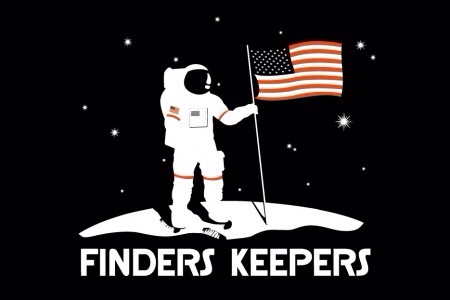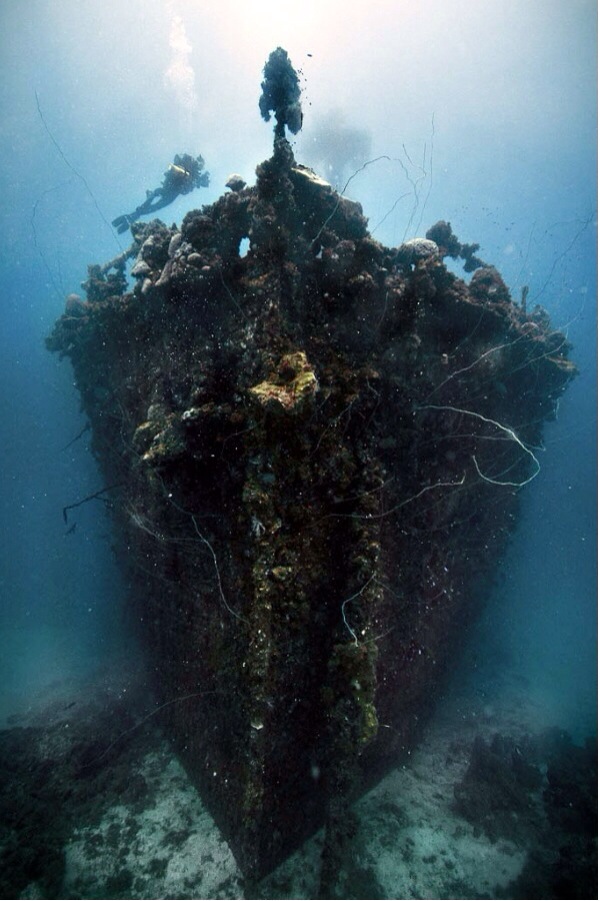Treasure hunters and Archeologists are seen to be enemies to one another. Archeologists are the ‘good guys’ and treasure hunters are the ‘bad guys.’ However, that all depends on how you believe history should be handled. The methods of artefact recovery are close to the same but it’s how the artefacts and fossils are dealt with afterwards is where the discrepancies between the two begin. Archeologists will study, document and preserve the historical objects whereas treasure hunters, often associated with grave robbers or pirates, are portrayed as only wanting to help themselves. But who really has the right to these historical discoveries? Finders keepers?
“[Archaeologists] claim that because the professional treasure hunter’s first priority is to sell what he finds, artifacts will be rushed from shipwreck to market without being carefully preserved or photographed and cataloged to record their historic value. They charge that even if the treasure hunter cared to preserve and catalog his discoveries, he couldn’t, because he is not properly trained to do such subtle and delicate work.” ~ Robert Kurson
Treasure Hunters vs. Archeologists
Archeologist: an anthropologist who studies prehistoric people and their culture.
Treasure Hunter: someone who engages in the physical search for treasure.
Archeologist are the ones who will dig up history in the name of science and education. They want to preserve cultures so that the public can experience and appreciate the past. This can help us understand ourselves and where we live.
Treasure hunters, however, have mixed feelings about this. Some believe that they are the good guys. These are the ones that treasure hunt so the artifacts can be displayed for the public, much like archeologist. Unlike archeologists, they don’t believe that any artifacts should be hidden on storage shelves in the back room for no one but them to see.
Although not as qualified as an archeologist, this particular kind if treasure hunter cares not only for the money, but for the artefacts to.
The treasure hunters who are the ‘bad guys’ tend to be how most people see the while bunch. These are the ones that focus on what they can profit from. They will only care for an object they know is of high value so that they can later reap the rewards when it comes to selling and trading. In the case of priceless Egyptian artifacts ‘many historic antiquities are found missing from museums,’ which justifies why some things should be hidden away. This is where treasure hunters and thieves tend to be seen as the same kind of people.
Precious pieces of history end up on the black market and are treated as profitable trinkets to be passed around and collected when, if found, should be preserved and kept safe so that history is not undermined and lost.
“The treasure hunter’s livelihood depends on keeping his discoveries in pristine condition. He knows that coins and gold and pottery must be handled with exquisite care in order to bring the highest possible price. He must use a surgeon’s touch with every artifact, because even that last lonely vase has value if it is deftly handled. The roughest and toughest of these treasure hunters have some of the gentlest hands in the world.” ~ Robert Kurson
You found it, but do you own it?
The biggest question to be answered is, who owns it?
Just because you found something does that mean that you have every right to do what you want with it?
If you dig up artifacts in a different part of the world do you take it home? or does the place where you dug it up have the right to it? or do the artifacts belong to the country of origin?
If everyone already knows about it, but you dig it up, does that mean you have more say in what happens to it over everyone else?
What are the boundaries when it comes to digging up graves and removing bodies?
Laws have been made in an attempt to navigate this hazy area. In America the Society for American Archeology states that “except for materials on federal land, state law applies and, with some exceptions, objects are the property of the land owner.” But there is not fixed rule on the subject and it will be different in different states.
However, like everything, regardless of laws people will still take what they want and do what ever they want with those things even if it could be valuable to a cultures history.
Leave it where it is?
I love being able to see artifacts and mummies but every time I do I can’t help but feel a little guilty. Seeing artifacts displayed in museums is why we go to them and it educates us, and on the other hand you’re taking something away from where someone wanted it to stay. Finding something that has been lost or is a missing part is different to going somewhere to take something just to put it on display.
Grave sites are a perfect example of this. There is a certain amount of disrespect in digging up someones grave or taking them out of their resting place, which is probably sacred, along with their belongings so that we can look at them through glass. My mother always told me to put things back where I found them when I’m done, what’s wrong with that? Sure, they are being preserved and this way we can all enjoy history, but if you were laid to rest in a place where you thought was safe, would you want someone digging you up and putting you on display?
Shipwrecks are another example of this. If a ship has been wrecked for centuries and it is found, do you haul it up, where it could be destroyed more, and spend massive amounts of money trying to preserve it? or do you leave it where it has always been? There is something in diving down to where a wrecked ship is to see where it finally rested and to experience what has happened to it over the years.
Would the Titanic be the same if we put it in a museum?
It’s a hard decision to make, preserve someone or something in a museum? or leave them where meant to stay and let nature take it’s course? How can we really be sure that taking it from where it was is going to ensure the artifacts survival, things can just as easily be ruined in a museum.
References
Comic Striphttp://www.hps.cam.ac.uk/people/robson/etal-who-owns.pdf
Robert Kurson Quoteshttp://www.guerrillaexplorer.com/adventure/treasure/is-treasure-hunting-immoral/
http://news.nationalgeographic.com/news/2013/03/130306-finders-keepers-treasure-hunting-law-uk-us/
Man on the Moon imagehttp://assaugm.wordpress.com/2010/10/18/finders-keepers-by-sakdiyah-maruf/
Shipwreck image: http://twistedsifter.com/2011/04/25-haunting-shipwrecks-around-the-world/


